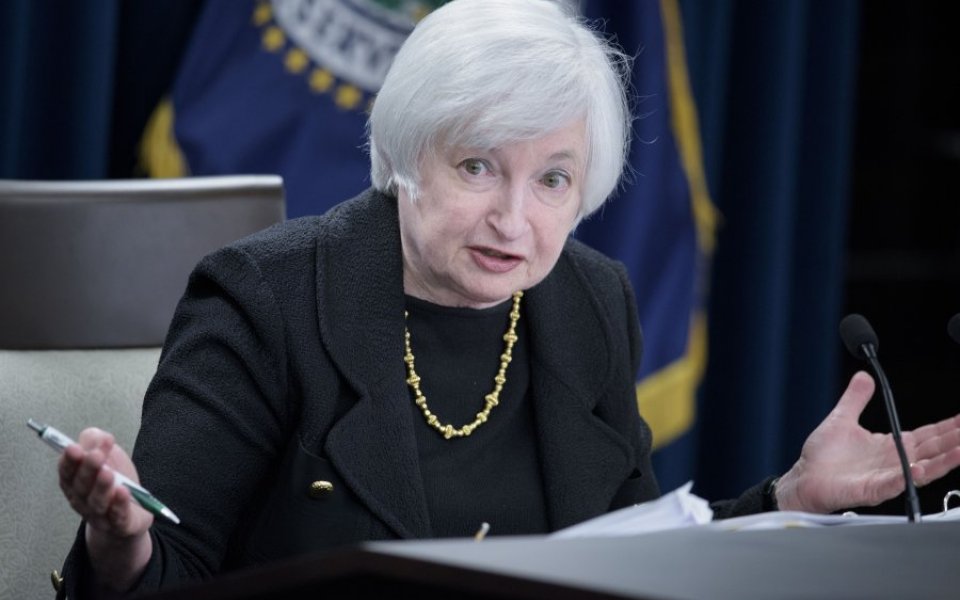US Fed leaves interest rate on hold amid global market volatility

The US Federal Reserve has voted to keep interest rates on hold at 0.5 per cent, following the first rate rise for almost a decade in December.
All but one member voted to leave the benchmark rate that banks offer to lend to each other overnight, known as the Federal Funds rate, between 0.25 per cent and 0.5 per cent.
The Fed said that it would not raise interest rates unless the economic conditions were right and would continue to monitor the situation, echoing its statement in September last year before it opted to hike three months later.
In a statement the Federal Open Market Committee (FOMC) said: "The Committee is closely monitoring global economic and financial developments and is assessing their implications for the labour market and inflation, and for the balance of risks to the outlook."
John Briggs, head of US strategy, at RBS Securities told City A.M.: “It’s been interpreted by the market as fairly dovish, because everyone was looking for the ‘monitoring global developments' phrase but the tone is steady as she goes.”
The Fed’s decision was widely expected by markets and economists, with 69 analysts polled by Reuters all predicting a hold.
In December the Fed forecast four more rate rises over the course of the year, though that has now been called into question.
Even before the January market turmoil at saw around 10 per cent wiped of both the S&P 500 and the Dow indices, Fed funds futures had priced in just two increases in interest rates by the end of 2016.
Following the sell offs since the start of the year that’s fallen to just one.
Odds on a rate rise in March have also taken a hit, with markets pricing in a one-in-four chance the Fed will raise then, according to Bloomberg data.
Alberto Gallo head of macro credit research at Royal Bank of Scotland told City A.M.: “They want to make it look like March is a go. I think the Fed will do one or two more hikes and then it will stop.”
US economic data has been underwhelming since policymakers raised the Fed’s short-term interest rate last month.
This week Markit’s flash services PMI came in below expectations for January, at 53.7. Economists had expected an index reading of 54, according to Bloomberg.
Manufacturing contracted for a second month, while inflation remains subdued.
One bright point was the latest jobs report, that showed surprisingly strong growth easing some fears the US is heading toward recession.